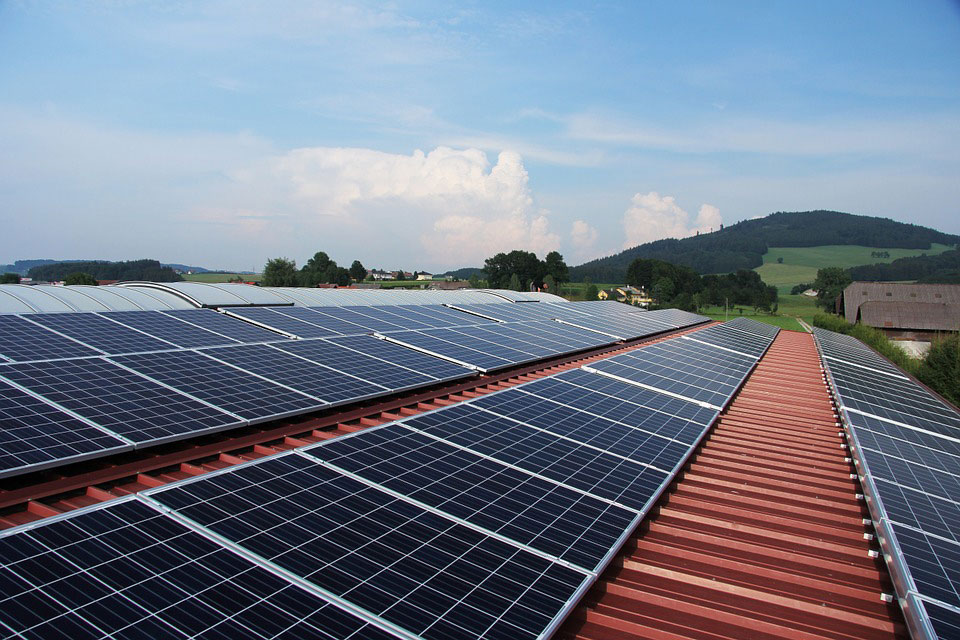 Homes with solar panels are quickly becoming the norm in the United States and overseas. The benefits of using solar energy spreads further than just being eco-friendly; they also include many money-saving incentives and cut costs on energy bills nearly immediately. If you're interested in installing solar panels on your home keep these things in mind before climbing up to your roof.
Homes with solar panels are quickly becoming the norm in the United States and overseas. The benefits of using solar energy spreads further than just being eco-friendly; they also include many money-saving incentives and cut costs on energy bills nearly immediately. If you're interested in installing solar panels on your home keep these things in mind before climbing up to your roof.
What kind of system do you need?
If you're trying to heat the water for your home or swimming pool or other less demanding applications of solar energy, a simple solar thermal system might be all you need.
A basic hot water system usually consists of a solar collector tied into the building's plumbing and electrical works. Such solar collectors, basically a small metal box with a glass or plastic cover and a black copper or aluminum absorber plate inside, are usually mounted on rooftops.
If you're looking to generate usable electricity from your home's rooftop, photovoltaic (PV) systems are the way to go. A typical installation involves the panels, which are constructed of many individual silicon-based photovoltaic cells and their support structures along with an inverter, electrical conduit piping and AC/DC disconnect switches.
Photovoltaic systems can cost thousands of dollars to install and may not be the ideal system for those looking for the cheapest power solution. However, the upside is that homeowners with PV systems can be confident that as long as the sun shines, they will have power to spare without pollution or added carbon dioxide.
Do-it-Yourself installations
Designing your own system
- You may not be able to connect to the grid with a self-installed system. Before you do anything else check with your utility company and your county building department.
- Check with your home insurance provider. You may not be able to get insurance for your home with a self-installed system.
- Some manufacturers will not sell equipment to anyone other than licensed contractors.
- When selecting equipment, it's imperative that you fully understand the installation manuals.
- You might not be saving much by installing yourself. Contractors buy large quantities of materials and they get much better prices which they can pass on to you.
- You may not get installation warranties if you go it alone.
- If you don't fully understand electricity, do not even attempt to install the system yourself. There are a lot of dangers with a PV system and you need to understand exactly when and where these dangers can occur.
Using a self-install kit
Some manufacturers offer kits for solar PV systems. If you're going to install yourself there are some big advantages:
- The design has already been worked out and it will operate the way it's supposed to (given that you've mounted and connected the equipment properly).
- You'll get all the parts you need and they'll work well together.
- When using a kit, the warranty terms are spelled out precisely; basically the only requirement is that the kit is installed correctly, which can easily be double-checked by visiting a manufacturer website. When designing and installing your own system and it isn't working once finished, manufacturers of individual components may be reluctant to honor warranties.
- With many kits, a customer service number is provided so that if and when you run into problems an expert can help you through the mess.
- Kit prices are very attractive compared to buying separate components from separate manufacturers.
- Assembly instructions are well-written and concise and will take you through each step of the process, spelling out dangers and potential problems.
Hiring a contractor
Qualified solar installers can advise clients on which specific types of systems will work best given their specific situation.
Websites like FindSolar.com and the North American Board of Certified Energy Practitioners (NABCEP) allow homeowners to search for qualified home solar system installers throughout the United States and Canada.
As with hiring anyone to perform work on your home, it's important to get quotes from multiple companies and hire whomever you feel most comfortable working with.
Questions to ask your installer
Here are some questions to ask your potential solar home system installer. Of course, if you have other questions you should not hesitate to ask the contractor.
- How much money is due up front?
- Which rebates and incentives am I eligible for?
- If my energy usage changes, can I add more panels later?
- When would I receive the Federal solar tax credit? How much is it?
- What will happen with local and state rebates? Will they increase over time?
- Do I need a new roof for an installation?
- What warranties are available on my panels? On your workmanship? The installation itself?
- Will the solar panels affect my homeowner's insurance?